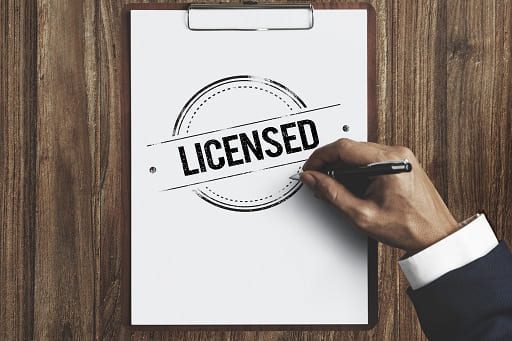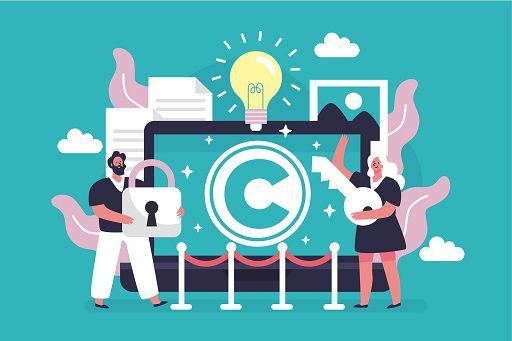Patent Licensing 101: All You Need To Know
If you’re thinking about licensing your patent, or someone has approached you about licensing your patent, you might be wondering what the process looks like. Licensing patents can be a great way to generate income from your invention, but it’s important to understand the ins and outs of the process before signing any agreements.
In this blog post, we will give you everything you need to know about patent licensing: from what types of licenses are available to what terms you should be looking for in a license agreement. Keep reading!
What is patent licensing, and why do you need it?
Patents represent valuable intellectual property, which is why if you’ve invested your time and money in a great invention or concept you should consider patent licensing. It’s like having the ultimate safety net – setting up proper licensing of the IP gives protection to what you’ve created and also sets you up for IP valuation in the future.
Once you license your IP out, it gains prestige, increases market value, and can even open the door to further collaborations. So don’t let your IP sit idle – with patent licensing it could be worth much more than you ever imagined!
The benefits of patent licensing
Patents are one of the most powerful business tools around, allowing inventors to reap great rewards from their hard work and innovation. Licensing patents is a cost-effective way for businesses to capitalize on new ideas without spending a fortune on research and development.
With patent licensing, companies can remain competitive by accessing groundbreaking developments as soon as they become available. For example, looking at the tech industry, huge companies can license patents of cutting-edge products produced by smaller firms, quickly incorporating them into their own devices and offerings.
A prudent business strategy that involves patent licensing can help create an efficient chain in which everyone benefits — from individual inventors to companies of all sizes.
How to get started with patent licensing
Patent licensing is a great way to bring in extra income and monetize your ideas. Getting started can seem intimidating, but it doesn’t have to be! With just a little knowledge and preparation, you can make the process much easier.
To get things moving, research the patent laws in your jurisdiction and identify what type of intellectual property is protectable by law. You’ll also need to review existing patents in your field so that you can avoid any potential infringement issues.
Finally, learn as much as you can about the basics of patent licensing, such as how to negotiate a contract and identify potential licensees. With all this information, you’ll have everything you need to get started with patent licensing!
The different types of patent licenses available
Patents can be tricky; you have to know your way around them. Depending on what needs to be covered and the context of their use, each patent might require its license. The most common types are exclusive, non-exclusive, sole, and co-exclusive licenses. Each has its specific conditions for the licensor and licensee to consider.
Exclusive license grants sole rights of commercialization of a product or invention to the licensee and prohibits any other party from making or selling the same or similar product or invention.
In comparison, a non-exclusive license allows multiple parties to access rights, but it also puts less control on the rights granted, meaning that anyone can access them (but only once they’re paid for).
For sole licenses, just one party is granted permission while under a co-exclusive license, two parties receive permission: so long as they aren’t in competition with each other!
You may not think licensing patents is fun… but making sure you choose the right one will help you sleep better at night!
The process of applying for a patent license
Applying for a patent license is no quick and easy feat, but with enough persistence, you can get your patent approved and open the door to greater income and career opportunities.
For starters, you need to ensure that all the paperwork – the applicant information, product description, drawings, and claims – are all prepared properly before submitting it to the Patent Office! Then, after filing and paying your fees, all that’s left is to patiently wait through long periods of review until eventually you hear back. But if everything goes right, your ideas can be protected under US law – a great accomplishment worth celebrating.
Things to keep in mind when licensing your patents
Licensing your patented ideas is a great way to turn a brilliant concept into cash, but there are some things to consider before making that leap.
First, it’s important to keep IP valuation top of mind. IP valuation is the process of determining how profitable a patent is as a piece of intellectual property. This isn’t an exact science, but there are certain factors you should consider like marketability, market opportunity, and potential for return on investment.
Next, think about the actual scope of use and payment of your patents, as well as what would happen if the licensor breached any contract terms. Are you willing to enforce your patent’s rights in court – and will the financial reward be worth it?
Also, consider who the licensee is, as this can make all the difference when it comes to the successful execution of the deal. Since these types of agreements have so many factors, having guidance from an attorney is highly recommended!
All in all, licensing patents can be an incredibly profitable endeavor – just make sure to keep your eyes open during the negotiation, and you’ll find yourself happy with the final results.
Tips for success with patent licensing
If you’re looking for success with patent licensing, consider these quick tips!
- Start by gathering detailed information about the patent in question, including all applicants and assignees listed on the application.
- Next, get a clear understanding of ownership rights; if more than one party owns a patent, you might need to negotiate an agreement.
- Finally, create realistic goals and timelines before negotiations; once those are in place you can begin constructing the licensor-licensee contract. When it comes to patent licensing, being proactive and prepared will lead to successful results!
Conclusion
Now that you know everything there is to need to get started with patent licensing, what are you waiting for? Go out there and license those patents! And don’t forget to keep the following things in mind: always be sure to do your research on potential partners, make sure you understand the terms of the agreement, and take the time to negotiate a fair deal. Have any questions about patent licensing that we didn’t answer here? Let us know in the comments below!
Need to Request or Submit Information?
Related Posts

How an IP Licensing Agreement with TAAL Will Benefit nChain’s Blockchain-Related Patents

How IP Licensing Deals Ensure Mental Health Startups Like Lantern Thrive
About Us

